Congressional language in legislative text is often long and confusing. The 26 words of Section 230 of the Communications Decency Act (C.D.A.) of 1996 are a rare exception and because of their elegance, helped launch the global internet revolution as we know it today.
“No provider or user of an interactive computer service shall be treated as the publisher or speaker of any information provided by another information content provider” (47 U.S.C. § 230).”
For those who find the above text too cryptic, the Electronic Frontier Foundation comes to the rescue: Online intermediaries that host or republish speech are protected against a range of laws that might otherwise be used to hold them legally responsible for what others say and do. In other words, social media outlets such as Google, Facebook, YouTube, and Twitter are not legally liable even if someone using these platforms in some manner plans and delivers bodily injury to someone else.
At issue is this concept of bodily harm and how much tech companies must pay in damages. A case winding its way through the federal courts has finally reached the United States Supreme Court, where oral arguments will be held on Tuesday. In 2015, Nohemi Gonzalez, a 23-year-old CalState student, was the lone American killed in a series of terror attacks in Paris orchestrated by the Islamic State. Her father sued Google and other tech companies, charging that they did not sufficiently censor radical speech included in ISIS propaganda, messages, and videos of graphic violence. The result, Mr. Gonzalez concludes, is that Google enabled users to become radicalized and, therefore, must be held legally responsible.
Even if Section 230 weren’t around, Mr. Gonzalez’s argument is a stretch. While we sympathize with his family for his terrible loss, most people know that images and speech around us do not alter our behavior unless we let them. Vegans don’t begin eating meat because a flier from a steakhouse lands in the mailbox.
Mr. Gonzalez did not sue the Islamic State, the perpetrator of these cowardly attacks, and had he done so, it would be entirely proper. He chose to sue Google instead for carrying the terrorist organization’s videos. He knows that Google had no hand in their creation, but Google merely served as a platform to disseminate someone else’s content. By Mr. Gonzalez’s logic, a vegan should sue the printer of the fliers (or the paper manufacturer) for communicating the steakhouse’s message.
But America has Section 230 out of a tradition of respect for free speech – and in this context, Mr. Gonzalez’s claim borders on the frivolous. The district court that first heard his complaints concluded that his claims were barred under 47 U.S.C. § 230 of the Communications Decency Act. When the plaintiffs appealed to the Ninth Circuit, a panel held that the district court in Gonzalez correctly ruled that § 230 barred most of the plaintiffs’ claims.
The Supreme Court’s decision, expected in June, will be among the most important cases for this term. If the Court reverses the Ninth Circuit’s decision and weakens or scuttles Section 230, the internet will no longer remain free. Social media platforms, discussion boards, and even newspaper reader comment sites will have to hire armies of people to monitor content constantly and bring it down if found offensive. Failure to do so could trigger lawsuits claiming both primary and secondary liability.
The Left’s arguments that misinformation and hate speech permeate social media platforms and must be contained have proven false. Elon Musk took over Twitter on Oct 27, 2022. In the last four months, no one has been hurt under new Twitter moderation policies that respect free speech. On the contrary, the “Twitter Files” reveal that censorship was rampant during the previous regime, abridging legitimate discussion around Covid-19 vaccinations, the Hunter Biden laptop, and Russia-Russia collusion. Even liberals now concede that mask mandates and school closures were overdone to the detriment of childhood learning. The Supreme Court should conclude that censorship, the most likely outcome of weakening Section 230, harms society substantially more than it helps.
We would like the Supreme Court to expand Section 230 protections because Congress is unwilling to touch the law. The Court can use two elegant precedents by focusing on the merits of free speech. In his concurring opinion in Whitney v. California (1927), Justice Louis Brandeis said: “If there be time to expose through discussion the falsehood and fallacies … the remedy to be applied is more speech, not enforced silence.” Referring to this elegant approach, former Supreme Court Justice Anthony Kennedy said in United States v. Alvarez. that “the remedy for speech that is false is speech that is true,” calling it “the ordinary course in a free society.”
We noted a year ago that Big Tech does not physically endanger anyone’s safety. It doesn’t create products (garden tools) that could accidentally harm people. Nor does it act to intentionally hurt people, such as a terrorist setting off his explosive vest. Nor does it have the regulatory responsibilities of government agencies – the F.A.A., F.D.A., and OSHA – which exist to implement laws to improve safety.
Sorry, Mr. Gonzalez, the remedy you seek is too painful for the rest of humanity. The United States Supreme Court can uniquely restore the internet to an era before Big Tech censors ran amok with their corrupt power to stifle discussion. We should eliminate the likes of Yoel Roth and Vijaya Gadde from our social media platforms forever. Let us go back to the glory days of a free internet.
TIPP Picks
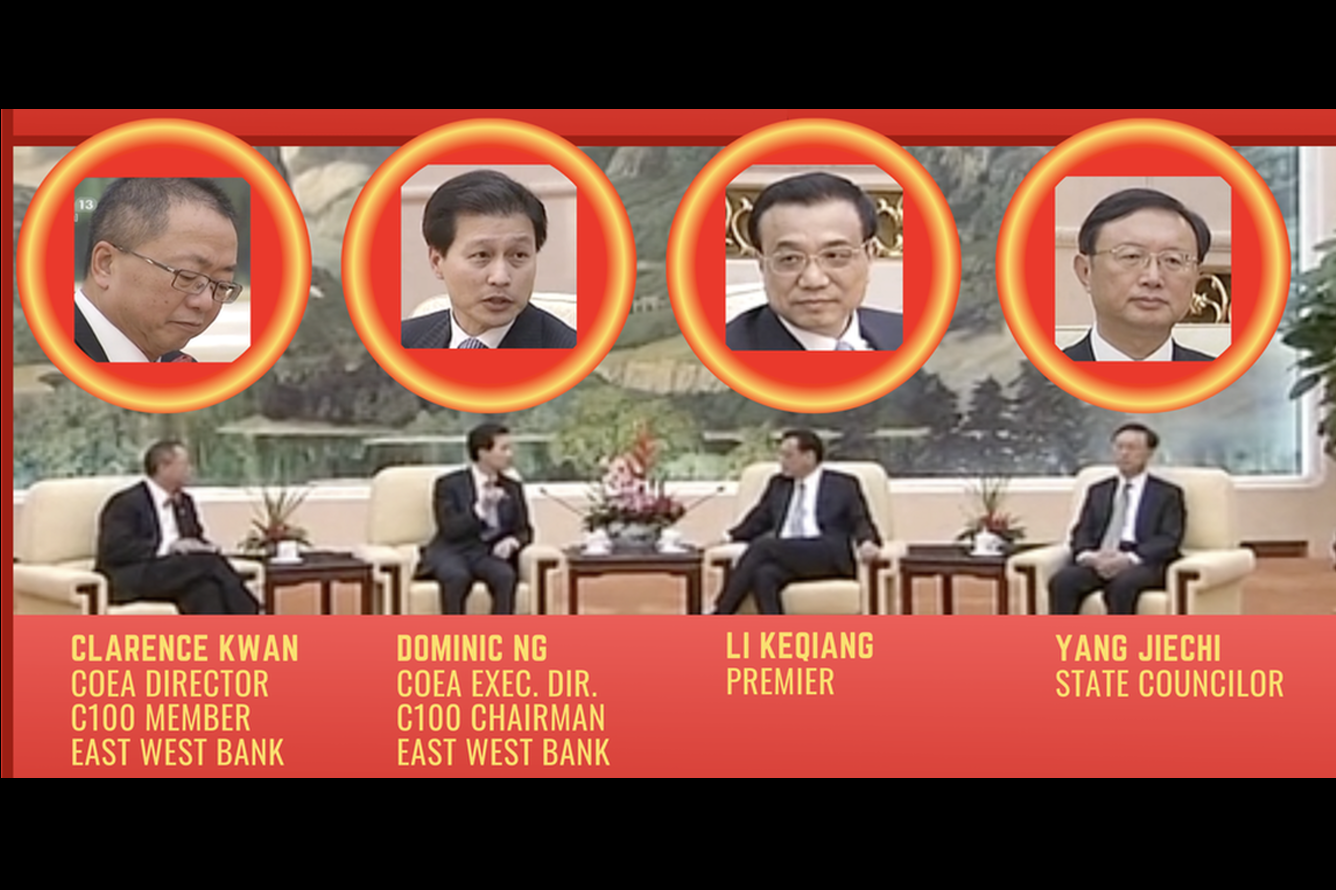

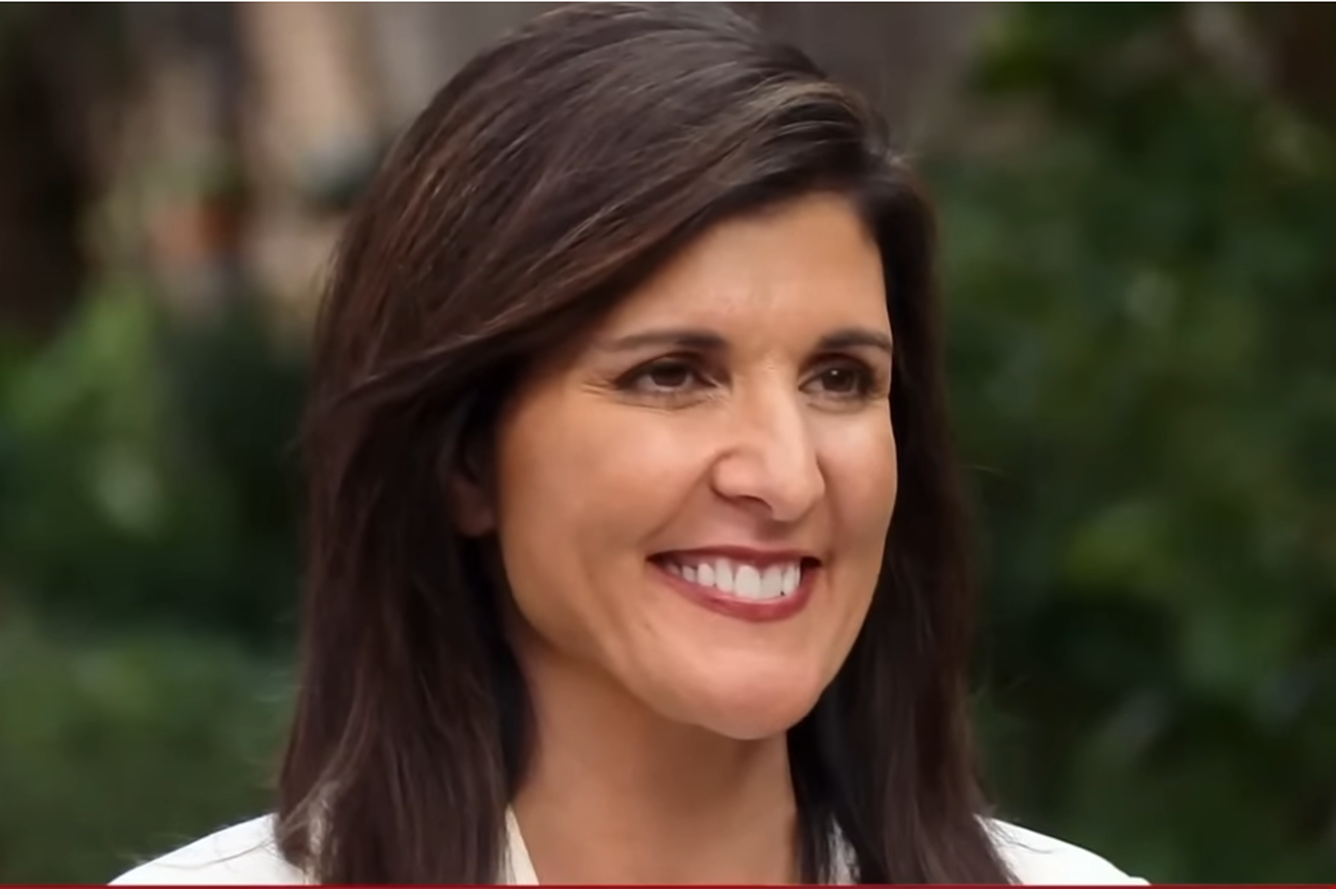
TIPP Takes
Geopolitics And Geoeconomics
#1. Biden Visits Zelensky In Kyiv And Says Putin ‘Dead Wrong’ On Ukraine War – BBC
The U.S. will back Ukraine in its fight against Russia for “as long as it takes,” President Joe Biden has said on an unannounced visit to Kyiv.
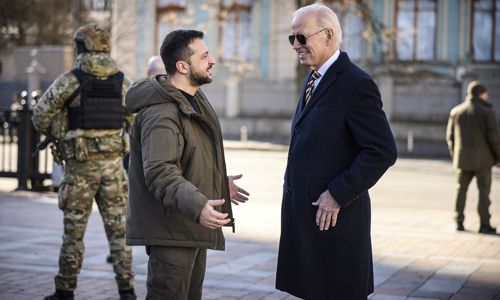
Biden’s first trip to Ukraine as president came days before the first anniversary of Russia’s invasion. He said Putin had been “dead wrong” to think Russia could outlast Ukraine and its Western allies.
Biden’s presence was intended to reaffirm America’s “unwavering commitment to Ukraine’s democracy, sovereignty, and territorial integrity,” according to a White House statement.
#2. Russia Urges Sweden Again To Share Nord Stream Probe Findings – Reuters
The U.N. Security Council will meet to discuss “sabotage” after Moscow asked for an independent inquiry into the September attacks on the pipelines that spewed gas into the Baltic Sea.
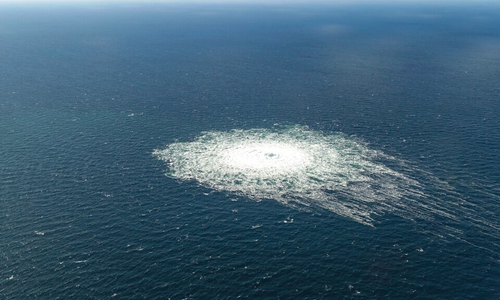
Sweden and Denmark, in whose exclusive economic zones the explosions occurred, have concluded the pipelines were blown up deliberately but have not said who might be responsible.
Russia’s embassy to Sweden reiterated the Russian foreign ministry’s question of whether Sweden had something to hide over the explosions.
It also reiterated Moscow’s stance without evidence that the West was behind the blasts affecting the Nord Stream 1 and 2 pipelines – multibillion-dollar infrastructure projects that carried Russian gas to Germany.
#3. Russia Plans Belarus ‘Absorption’ By 2030 — Media Reports – D.W.
Russia plans to absorb neighboring Belarus by 2030, according to a Russian presidential document obtained by international journalists who believe it to be authentic.
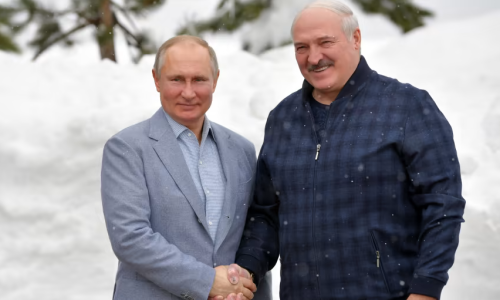
The document, reportedly dates back to the summer of 2021, sets out a plan to infiltrate Belarus politically, economically, and militarily. Plans are set out on different stages: short-term or until 2022, medium-term or until 2025, and long-term, meaning 2030.
Both countries are already formally part of a so-called “union state,” as per a 1999 agreement. The agreement sets a legal basis for integration between the two countries.
#4. Zelensky Says Macron ‘Wasting His Time’ Trying To Talk To Putin – RFI
Zelensky says French President Emmanuel Macron is wasting his time establishing a dialogue with Putin, who is lost in “the dream of rebuilding the former Soviet empire.”
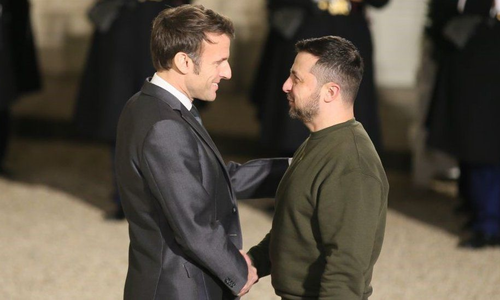
“Dialogue is useless,” the Ukrainian leader says in an interview carried by the three most influential Italian dailies. “Macron is wasting his time,” Zelensky continues. “I have come to the conclusion that we are not going to change the Russian attitude by talking.”
In a French Sunday newspaper, Emmanuel Macron said it was essential to defeat Russia in the Ukraine war without humiliating Moscow. To that end, the French president proposed negotiating with Vladimir Putin.
#5. Beijing Says U.S. Claims Of China On Brink Of Supplying Arms To Russia ‘False’ – WION
“It is the United States and not China that is endlessly shipping weapons to the battlefield,” said China’s foreign ministry spokesman Wang Wenbin, while speaking about the U.S. claims.
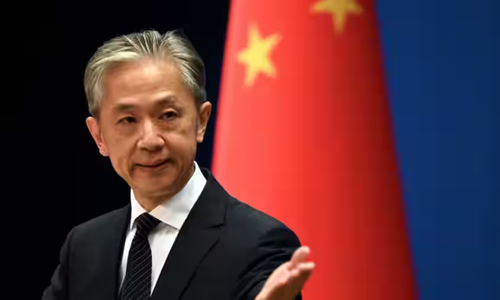
“We urge the United States to earnestly reflect on its own actions and do more to alleviate the situation, promote peace and dialogue, and stop shifting blame and spreading false information,” he added.
The statement of the Chinese foreign ministry spokesperson came after U.S. Secretary of State Antony Blinken, in an interview, said that China was “considering providing lethal support” to Moscow ranging “from ammunition to the weapons themselves.”
#6. China ‘Deeply Concerned’ About ‘Intensifying’ Ukraine War – Al Jazeera
“We urge certain countries to immediately stop fuelling the fire,” China’s Foreign Minister Qin Gang said during a speech at the Lanting Forum on global security in Beijing.

He stressed that China would “work with the international community to promote dialogue and consultation, address the concerns of all parties and seek common security.”
Qin was speaking as top diplomat Wang Yi was expected in Moscow for possible talks with Russian President Vladimir Putin, where state media said the Russia-Ukraine war would be high on the agenda.
While visiting Hungary on Monday, Wang called for a negotiated settlement to the conflict.
#7. China Releases ‘Global Security Initiative’ – D.W.
The initiative is the flagship proposal of Chinese President Xi Jinping.
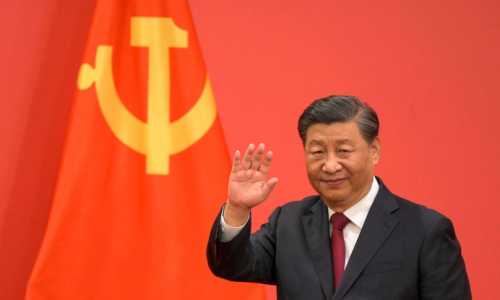
Chinese state media reported the paper lays out core concepts and principles regarding global peace and security.
#8. UK Summons Iran Envoy Over Threat To Journalists, Sanctions Eight Iranian Officials – Al Arabiya
Britain summoned Iran’s most senior diplomat in London over “serious threats against journalists living in the UK”. It sanctioned eight Iranian officials for “repressing their own people.”
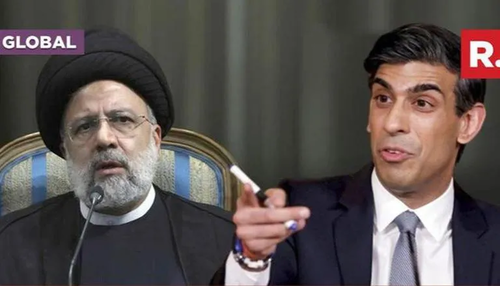
Iranian Chargé d’Affaires Mehdi Hosseini Matin was summoned and met with British Director General for the Middle East Vijay Rangarajan, who stressed that the “UK will not tolerate threats to life and media freedom.”
This follows London-based Iran International TV’s decision to shut down its operations in the UK due to a “significant escalation in state-backed threats from Iran.”
In addition to three judges, the UK sanctions targeted five commanders from Iran’s Islamic Revolutionary Guard Corps (IRGC).
#9. Turkey Rejects Links Between NATO Expansion, F-16 Deal – A.P.
U.S. Secretary of State Antony Blinken called for Sweden and Finland to be accepted into NATO “as quickly as possible.” However, his Turkish counterpart dismissed the possibility of any link between their accession and Turkey’s request for F-16 fighter jets.
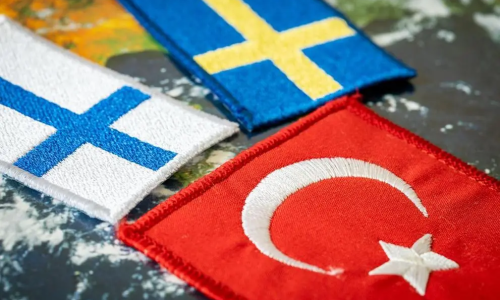
Turkey has delayed the Nordic country’s admission to the trans-Atlantic defense alliance, citing concerns over terrorism. Meanwhile, members of the U.S. Congress have tied approval of the F-16 deal to Ankara, retracting its opposition to the NATO enlargement.
Turkish Foreign Minister Mevlut Cavusoglu said that Turkey would approve Finland joining NATO before Sweden.
#10. Netanyahu Blasts UN Settlements Censure As Denying Jews’ ‘Historic’ Rights, Slams U.S. – Al Arabiya
The UNSC presidential statement, agreed by consensus of all 15 member countries, strongly opposed Israel’s construction and expansion of settlements on occupied Palestinian territories.
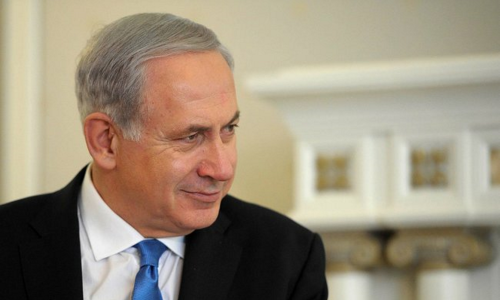
Israeli Prime Minister Benjamin Netanyahu’s office issued a severe statement saying that the UNSC statement was “one-sided” and “denies the rights of Jews to live in our historic homeland.”
Netanyahu singled out Israel’s closest ally, the US, in a rare criticism: “The statement should never have been made, and the U.S. should never have joined it.”
#11. South Korea Slaps More Sanctions On North Korea In Response To Missile Provocations – Yonhap
South Korea is imposing sanctions on four individuals and five institutions involved in the secretive regime’s nuclear and missile development programs or helping Pyongyang evade sanctions.
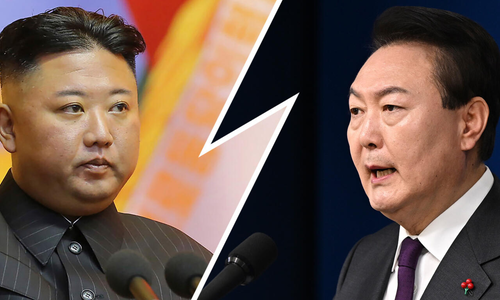
Those blacklisted include Ri Song-un, former economic and commercial counselor at the North Korean Embassy in Mongolia, and Vladlen Amtchentsev, a Russian-born South African national who has helped North Korea buy oil illegally, it said. Ri is known to have negotiated trade deals involving weapons and luxury goods.
#12. Groundwater Carries Radiation Risk For North Korean Cities Near Nuke Test Site – Rights Group – Reuters
The study by the Transitional Justice Working Group said radioactive materials could have spread across eight cities and counties near the site, where more than 1 million North Koreans live and where groundwater is used in everyday lives, including drinking.
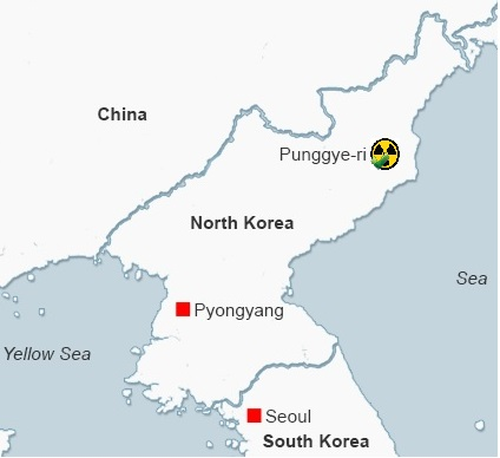
North Korea secretly conducted six tests of nuclear weapons at the underground Punggye-ri site in the mountainous North Hamgyong Province between 2006 and 2017.
It also said that neighboring South Korea, China, and Japan might be at risk due partly to agricultural and fisheries products smuggled from the North.
#13. Japan Discovers 7,000 New Unknown Islands After Fresh Survey Since 1987 – NDTV
After the Japanese government’s first official survey of its territorial waters since 1987, the official number of Japan’s islands is expected to double from 6,852 to 14,125, adding 7,272 new islands.
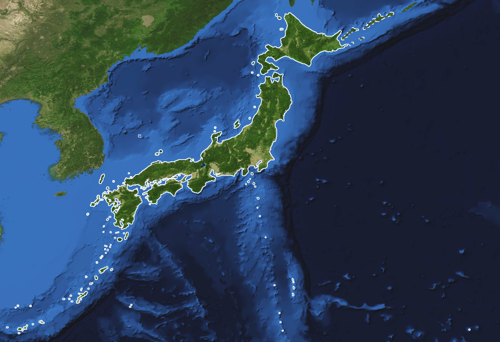
The new survey conducted by the Geospatial Information Authority of Japan will not increase the nation’s territory. However , as per New York Post, it would give officials a more accurate picture of Japan’s territory.
Republished with permission from TIPP Insights














